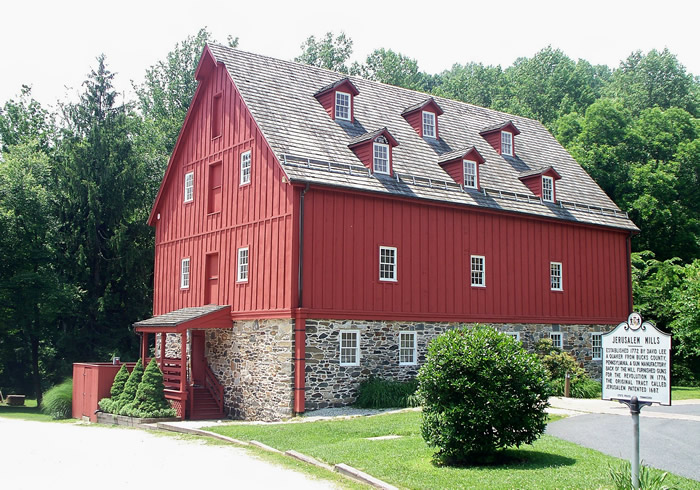
Lee's Merchant Mill / Jerusalem Mill
Harford Co. | Maryland | USA
Watersource: Little Gunpowder River.
Lee's Merchant Mill / Jerusalem Mill
The mill is located on Jerusalem Road, about 300 yards west of the junction with Jericho Road. From Bel Air, go south on US 1 about 4.5 miles to Md 152. Turn left and go about 1.5 miles to Old Joppa Road on the right. After 4/5th mile, angle right onto Jerusalem Road and go about 2/3rd mile to the mill complex on the left, just before crossing the creek.

The Jerusalem Mill is probably the oldest standing mill in Harford Co. The mill's name derives from the 1687 patent upon which it is located, "Jerusalem". The ground was acquired by David Lee in 1772. It is believed the five story mill was built by Isaiah Linton, millwright, with David Lee, owner, from 1769-1772.
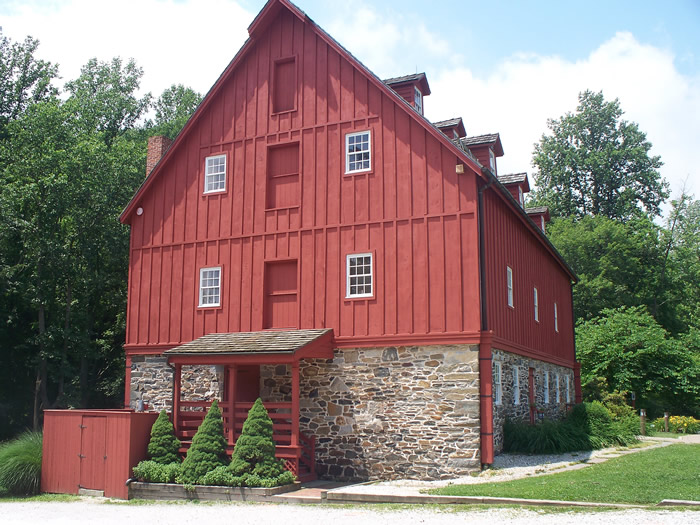
Besides running a flour mill, Lee manufactured gun stocks in a small building next to the mill. After about forty years under David's successful management, the mill passed by will to his son, Ralph Sackett Lee, in 1811.
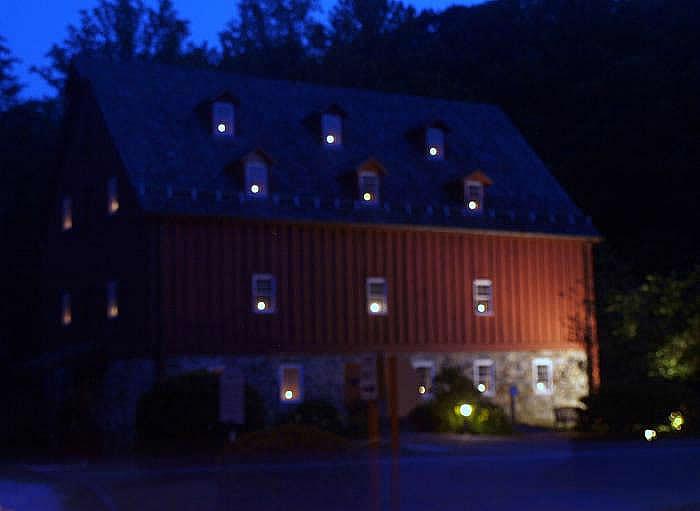
This photo, of the mill decorated for July 4th, was taken a little before 9 PM, on July 6, 2012.
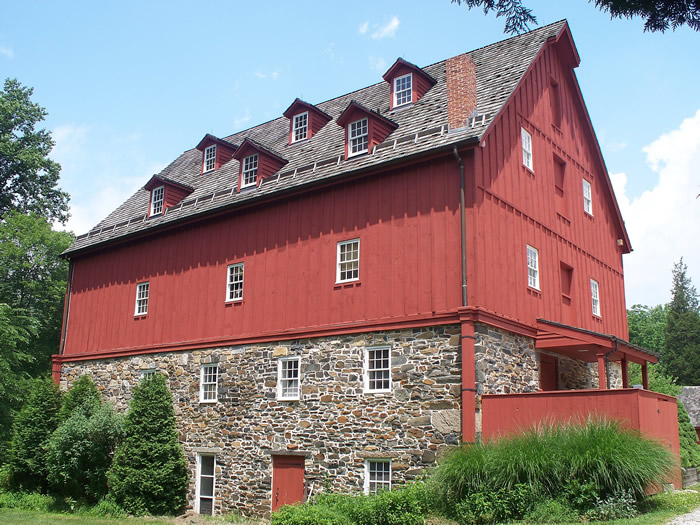
Flour under the label "White Silk" was shipped locally, and around the world from Joppatown and Baltimore. It was known as Lee's Merchant Mill until the 1870s, and it was one of the largest mills in Maryland. It was used as a mill until 1961. A post office was established at Jerusalem Mill in 1840; an 1858 map of the district shows Lee's P.O. at the mill location. A long period of prosperity followed until 1880 when rural mills were undersold by bigger mills.
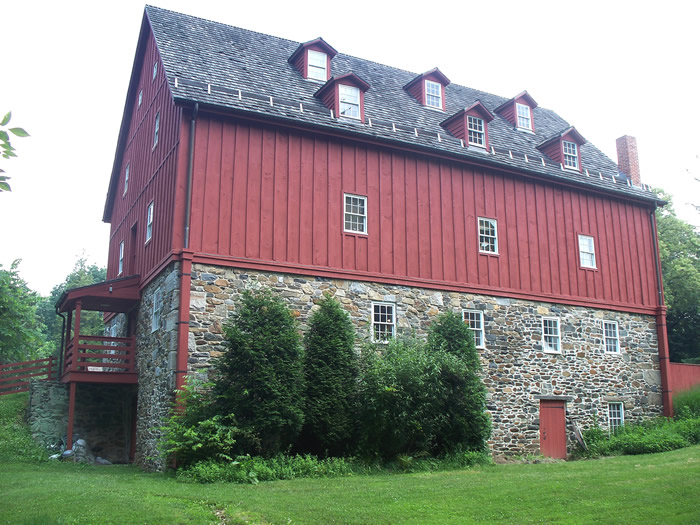
Jerusalem Mill was bought by the State of Maryland in 1961, but was not maintained until citizen pressure prevailed in the 1990s. The restored structure opened in 1995 as the headquarters of the Gunpowder Falls State Park.
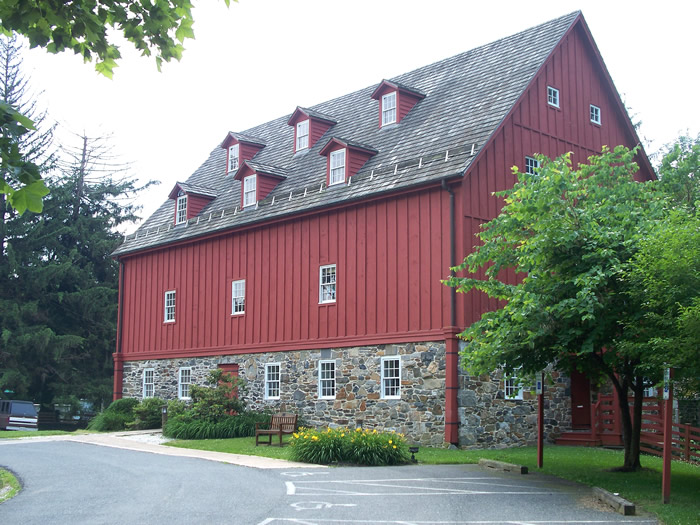
The mill did no less well during Ralph Lee's ownership, producing $1,200 worth of corn meal and $12,000 of flour in 1849. Ralph instituted the production of kosher Passover flour for the Jewish community of Baltimore. This involved the presence of a congregation official to ensure that no other flour was ground between the start and the finish of the blessed kosher grain.
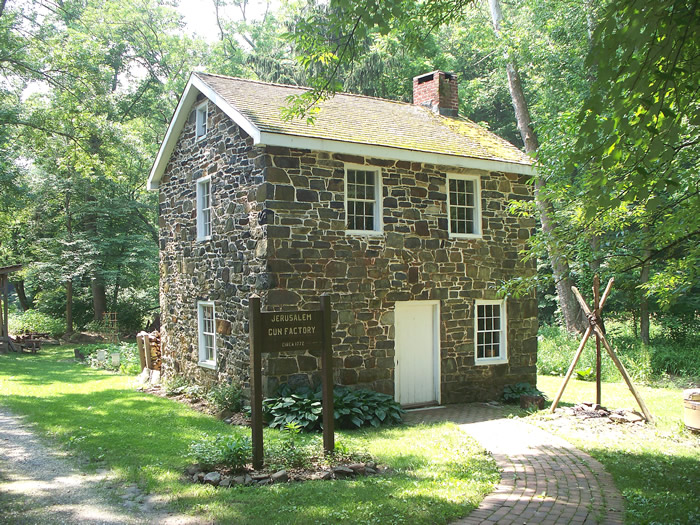
The business passed to Ralph's son David in 1862; who operated the mill through the Civil War. By this time, the operations of the mill had become widely diversified, as is evidenced by the photo of the gun factory. This was common among such operations, which functioned as a center point in rural life, normally combining the flour milling with saw milling, cider presses and various retail operations. According to tradition, black walnut gunstocks were made and muskets were assembled in this building during the Revolutionary War. The building also served as a cooper shop.
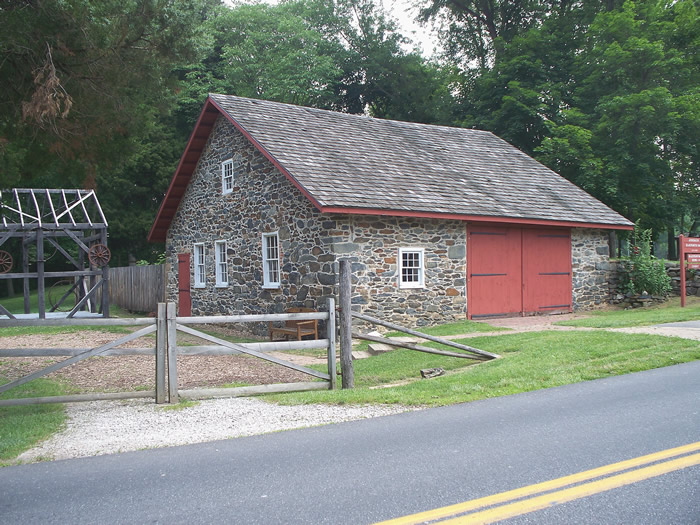
The Lees also ran a blacksmith shop and manufactured chair-rungs in the old gunstock addition. As the mill itself was run by separate leasees in the 1870's, the property passed out of Lee hands about 1886. It continued to operate under water power into the 20th century.
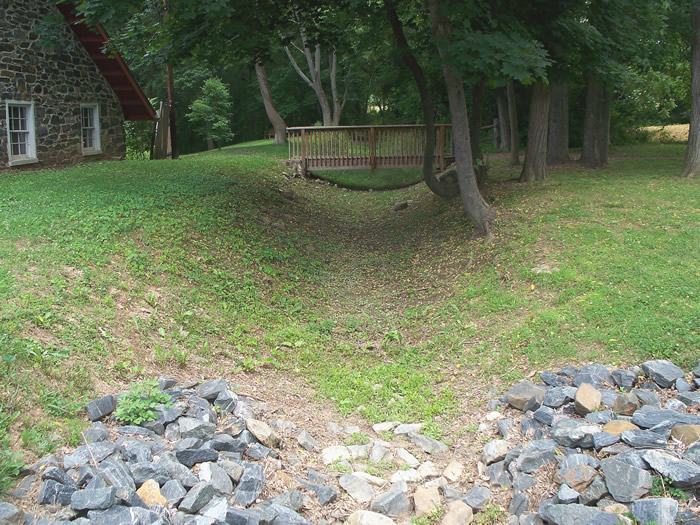
Headrace coming off the Little Gunpowder River, otherwise known as the "Little Falls of the Gunpowder". The race runs along the side of the Blacksmith Shop.
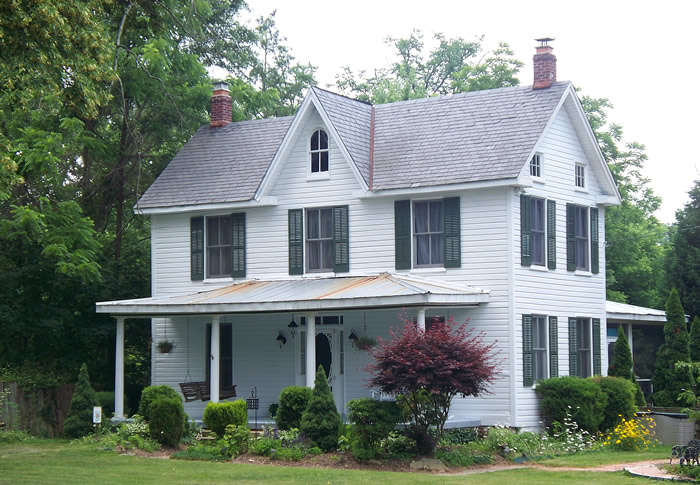
The Tenant House appears on an 1860 plat map and was likely a tenant farmhouse. Photographs from about 1910 show a single story with attic and dormers. Later , a full second floor was added.
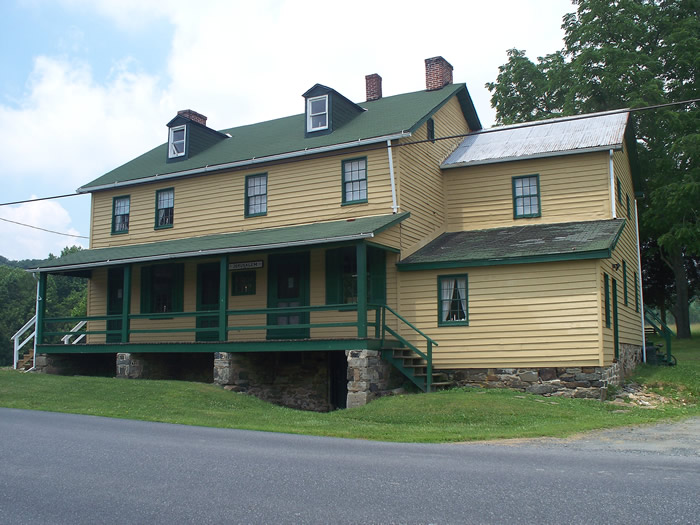
Ralph S. Lee built the 2.5 story structure, McCourtney's Store, that was in use as a general store when Major Harry Gilmor's band of Confederate cavalry raided it in July 1864. By 1906 Samuel Oliver McCourtney was leasing and operating the store. He operated the store until his death in 1939.
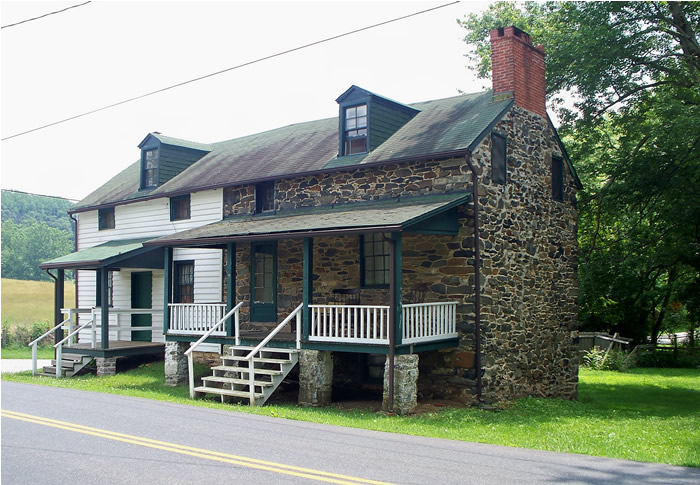
The tenant farmhouse was lessed by various workers and millers at the mill, many times also farming the land to make a better living income. GPS: 76' 23.24W, 39' 27.45N
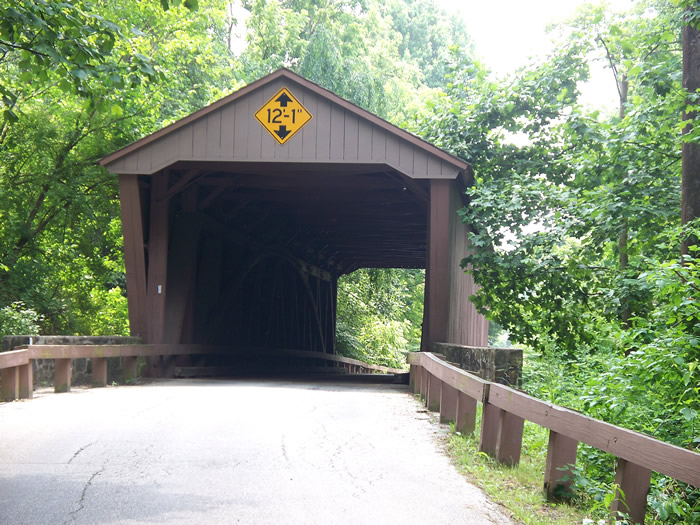
The Jericho Covered Bridge, located on Jerico Road, an alternate crossing of the Little Gunpowder Falls, was built in 1865.